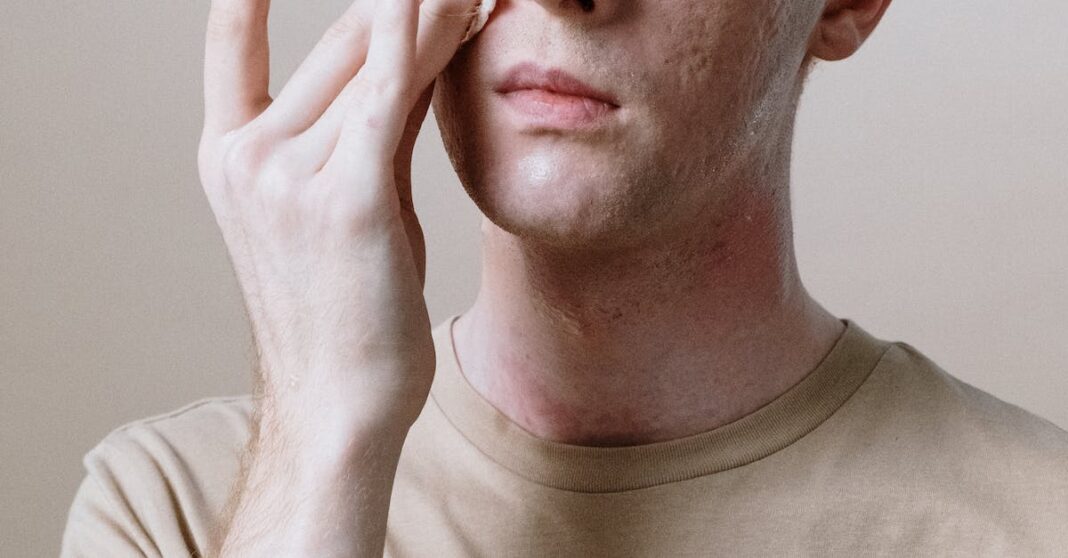Acne is formed when dead skin cells, oils, and bacteria get trapped in the lining of your hair follicles. While it’s best known as a teenage condition, adults can deal with acne too. Getting rid of it is always the primary goal, and it can be accomplished if you use diligence and follow a few steps.
If you have a breakout, resist the urge to scratch or “pop” any pimples. This could cause an infection, scaring, or maybe even both. Try over-the-counter medications, creams, and astringents first. If your acne worsens, consider making an appointment with a dermatologist who can suggest something more effective.
Sweating is a great way to help with acne. If you go get sweaty while exercising, it can clean out the gunk from your pores. However, be certain that you wash right away after you finish your workout, since allowing sweat to sit on your skin can cause its own set of problems.
Watch what you put in your hair as it can cause or aggravate acne. Many hair products contain oils, fragrances, harsh chemical products and other irritants, that can cause acne. Also, be careful if your hair is naturally oily. All it takes is for a single strand to hit or stay on your face to cause breakouts.
If you have acne avoid picking your skin at all costs. Picking pimples can cause acne to spread, and if your fingers aren’t sterile more bacteria can be transferred onto your face leading to new outbreaks. Picking also damages the skin and interrupts the skin’s natural healing process, meaning existing acne eruptions will take much longer to heal.
When it comes to acne, you are the best person in the world to know how your skin behaves. If your skin feels like it is getting oily, you should wash it immediately. If you feel it is becoming too dry, grab a moisturizer and massage gently on your face.
When you have a pimple on your face that will not go away, try using a natural ingredient such as lemon juice. Lemon juice is a wonderful extract that speeds up the healing process and can bring your acne to a head quicker. This is done by drying out your skin in a safe and secure manner, in order to get rid of pesky zits.
Do you feel that you can never get rid of your acne? Skin problems can also be caused by allergens, including mites and hay fever. Finally, you should avoid stress wherever possible. The hormone responses caused by stress can further invite irritation.
In the winter, try to avoid places that typically contain dry air. When there is little moisture in the air you are around, there is a good chance for your skin to react negatively and dry out. This can lead to excess acne and red blemishes, due to the irritation that dryness causes.
To help clear up your acne remember not to allow sweat to linger on your face. It is great if you work out frequently and are physically active but it is important to wipe off any sweat that accumulates on your face during exercise. After exercising you should wash your face with a cleanser as quickly as possible in order to get rid of any dirt or dried sweat. This will keep your pores clean.
Staying calm about acne is tough but important. When an acne problem becomes serious it can be hard to ignore. Yet obsessing over acne can actually make it worse. Stress is one of the secondary contributing factors to acne outbreaks, so worrying about acne can cause a perverse chicken-and-egg symbiosis. Putting acne problems out of mind can give a little boost to the healing process.
Avoid wearing tight clothing during workouts or heavy activity as heat and friction combined will cause acne anywhere on your body. A hat or sweat band, even snug fitting yoga outfits may instigate a rash of acne, especially anything made from synthetic fibers. Switch to loose, comfortable clothing and accessories that are made from cotton or other natural fabric to reduce such inadvertent breakouts.
An important tip to consider concerning acne is to know why pimples and acne swell and contain puss. This is important to know because these are healthy reactions, showing that your body is fighting the infection. The swelling is caused by a mass of white blood cells, and the white puss is the result of those white blood cells doing their job then dying off.
In this article we have outlined some important steps for fighting your battle against acne. They will help you to dry up excess oil, kill bacteria, and exfoliate dead skin cells too. Whether you are a teenage or an adult, follow these steps and you are likely to see success in the form of a clean, clear, and glowing complexion.


